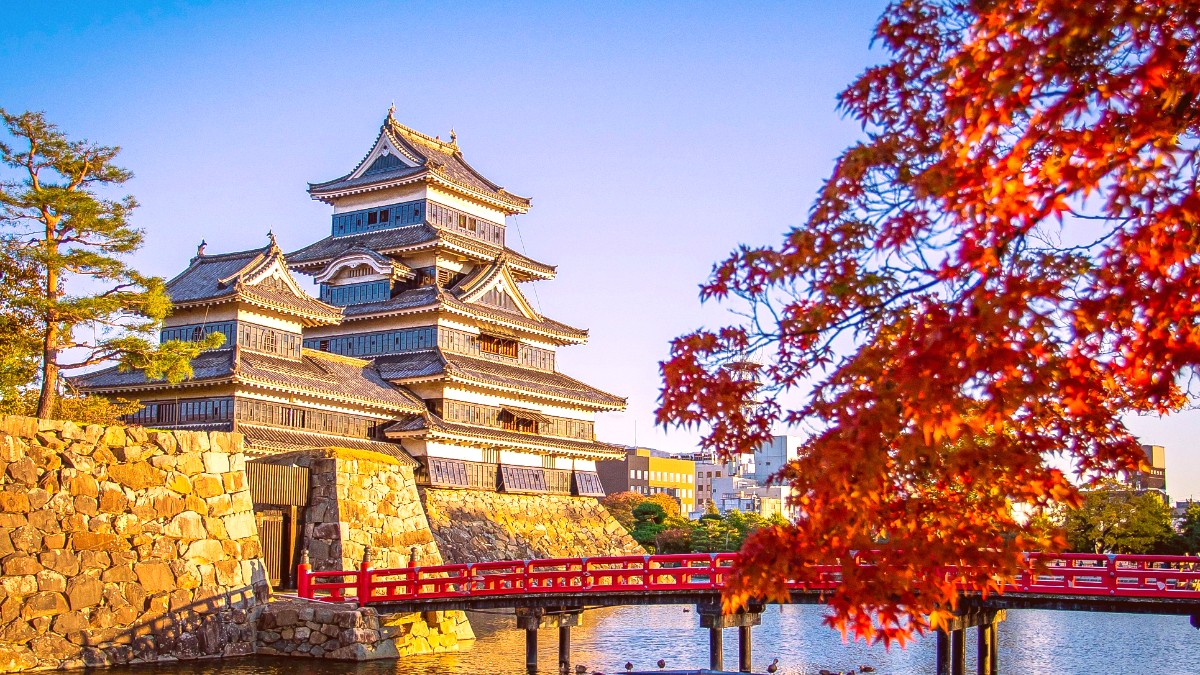
Central Honshu, Japan
Budget-friendly, with dormitory beds and sometimes private rooms. Good for solo travelers and backpackers. These often foster a social atmosphere.
Clean, compact, and efficient rooms with private bathrooms, Wi-Fi, and a desk. Value for mid-range travelers, with a focus on functionality.
Larger facilities, more spacious rooms, dining options, lounges, and sometimes fitness facilities. For travelers seeking more comfort.
Japanese-style inns providing a cultural experience with futon beds, tatami mats, communal hot spring baths (onsen), and multi-course meals.
Located in hot spring towns near Matsumoto. Their main draw is access to large communal onsen baths, with various mineral waters.
Simpler, family-run Japanese guesthouses. More rustic and homely than ryokan, with a more intimate and budget-friendly stay.
More space, privacy, and kitchen facilities. Suitable for families, groups, or longer stays where self-catering is a preference.
Travelers stay with local families. Cultural immersion and insight into daily Japanese life. Inquire at the Matsumoto Tourist Information Center.
Matsumoto's city center is compact, but different areas present distinct atmospheres and conveniences.
All areas of Matsumoto, including the station, castle, and traditional street areas, are very safe, even at night. Japan has a low crime rate.
The Matsumoto Station area is busy and active. The Castle, Nakamachi, and Nawate areas are generally quieter with a more atmospheric charm, notably in the evenings.
Discover the best times to reserve accommodation and reliable platforms for your Matsumoto stay.
Japanese properties often charge a percentage for cancellations made within a few days of arrival or for no-shows.
Bargaining for accommodation prices is not customary in Japan. Prices are generally fixed.
During high demand periods, popular options book out quickly. Early booking is strongly advised.
Here are top picks for different budget levels and travel styles, alongside properties with exceptional cultural or historical significance.
For solo travelers and those on a tight budget.
For comfortable and efficient stays.
For a refined experience with historical depth.
An immersive ryokan experience away from the city bustle.
Larger city hotels feature family or connecting rooms. Vacation rentals via Vrbo or apartment options are also suitable with more living space and kitchen facilities.
Hostels like Hostelworld listed Matsumoto Backpackers foster a social atmosphere. Business hotels provide privacy and a straightforward, efficient stay.
For stays longer than a week, vacation rentals or apartment-style hotels are best. They often feature kitchen facilities and laundry access, for a home-like environment.
Consider TrustedHousesitters for unique, extended stays.
Its long history and unique blend of Western and traditional Japanese design elements make this hotel a piece of cultural significance, demonstrating local crafts.
Staying in a traditional ryokan presents a deep dive into Japanese hospitality, onsen culture, and traditional culinary arts. These establishments often span decades or centuries.
Explore platforms such as Booking.com, Agoda, or IHG Hotels for a range of options.
Choose lodging near your main interests. The station area suits transport needs, while the castle area offers historical ambiance.
Online reviews often disclose details about amenities, noise levels, and staff service. This aids in finding a suitable match for your preferences.
Proximity to public transport or specific attractions might be a deciding factor. Evaluate walking distances or bus routes to your planned activities.
Always review the cancellation and deposit policies for each property.
Verify desired amenities like Wi-Fi, private bathrooms, or breakfast options.
Confirm the property's exact location relative to transportation and attractions.